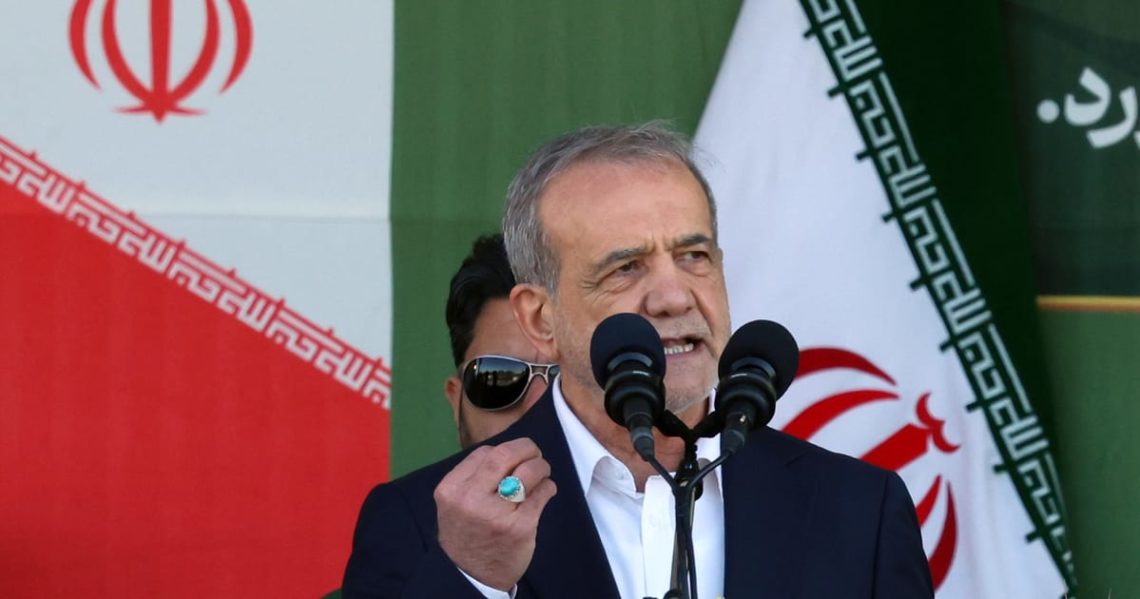United States President Donald Trump has expressed concerns over Iran’s nuclear activities, stating that Iran has not agreed to inspections of its nuclear program or ceased enriching uranium. During a press briefing aboard Air Force One, Trump remarked that Tehran’s nuclear ambitions had been significantly hindered, although he acknowledged the possibility of Iran restarting its program in a different location.
As tensions escalate between the US, Israel, and Iran, Trump indicated plans to discuss the issue with Israeli Prime Minister Benjamin Netanyahu during his upcoming visit. The potential for a Gaza ceasefire is anticipated as a key item on their agenda.
“I would think they’d have to start at a different location. And if they did start, it would be a problem,”
stated Trump regarding Iran’s potential restart of its nuclear program. He emphasized his commitment to preventing Tehran from resuming such activities and mentioned Iranian officials’ expressed interest in meeting with him.
The International Atomic Energy Agency (IAEA) recently announced the withdrawal of its inspectors from Iran amidst escalating conflicts surrounding the country’s nuclear facilities that were targeted by US and Israeli airstrikes. Allegations from both countries claim that Iran was engaging in uranium enrichment for developing nuclear weapons—a claim vehemently denied by Tehran.
Despite assertions by the US and Israel, neither American intelligence nor IAEA Chief Rafael Grossi have presented concrete evidence supporting claims of Iranian pursuit of nuclear armament. Amidst ongoing hostilities and accusations, discussions about resuming monitoring activities in Iran remain at an impasse.
In response to international pressures and allegations of non-compliance with nuclear regulations, Iran has shown growing scepticism towards IAEA involvement. This skepticism came to a head following critical remarks towards IAEA actions before and during the conflict with Israel and the US.
President Masoud Pezeshkian issued orders to sever ties with the IAEA as part of asserting national sovereignty over Iran’s affairs related to nuclear activities. A bill suspending cooperation with the agency was swiftly passed in parliament and endorsed by the Guardian Council—a move aimed at safeguarding Iranian interests until specific conditions are met concerning security guarantees for their facilities and personnel.
Foreign Minister Abbas Araghchi dismissed calls for facility visits without adequate assurances for security from Grossi—further highlighting tensions around access to sites impacted by military strikes. Questions linger over the fate of depleted uranium stockpiles post-strikes on enrichment sites within Iran—an issue demanding clarity moving forward amidst conflicting narratives.
As diplomatic dialogues stall amid deep-rooted mistrust between parties involved, uncertainties loom over when IAEA inspectors will be able to resume oversight duties within Iranian territories impacted by recent escalations in regional conflicts.

